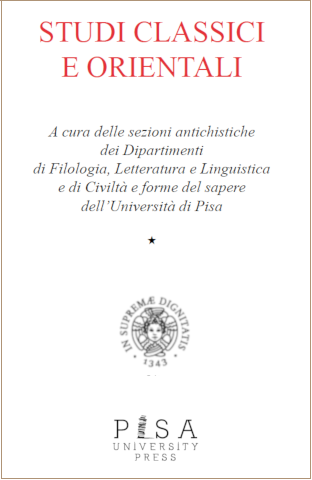Il nome segreto di Roma tra antiquaria ed esoterismo. Una riconsiderazione delle fonti
Abstract
The secret name of Rome between antiquarianism and exoterismusStarting from a well known passage in the Saturnalia (3,9), where Macrobiusdescribes the ancient, and probably cognate rituals of evocatio anddevotio hostium, this paper scrutinizes some other Greco-Roman sourcesthat deal either with the notion of a secret name or with a tutelary deity ofRome, whose knowledge and utterance was strictly prohibited, in orderto forestall the danger of an enemy’s evocatio.Besides an obviously implied Redetabu, it is possible to argue for a politicaluse of this motif – namely in the famous episode of Valerius Soranus,allegedly accused to have divulged the secret during the Social Waror, later, of Stilicho, proditor arcani imperii. Finally, the discussion ofLydus’ De Mensibus 4,73, which apparently reveals the sacred and themysteric names of Rome (stating that the city was also called Flora andAmor) allows us to examine in detail some more esoteric interpretations,concerning the probably bisexual nature of the tutelary deity, and offersa hint to present a little known Italian theatrical text about the SacredOrigins of Rome. Originally written in 1914 by a Sicilian nobleman, therepresentation of this work was made possible ten years later thanks tosome neopagan and traditionalist intellectuals, in an attempt at revivingRoman traditions under the newly established Fascist regime.
tommasi@flcl.unipi.it
Fascicolo
Sezione
Articoli


